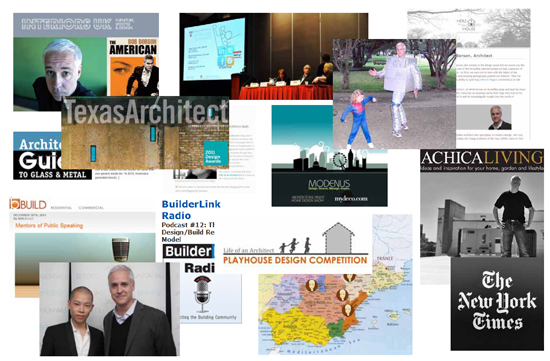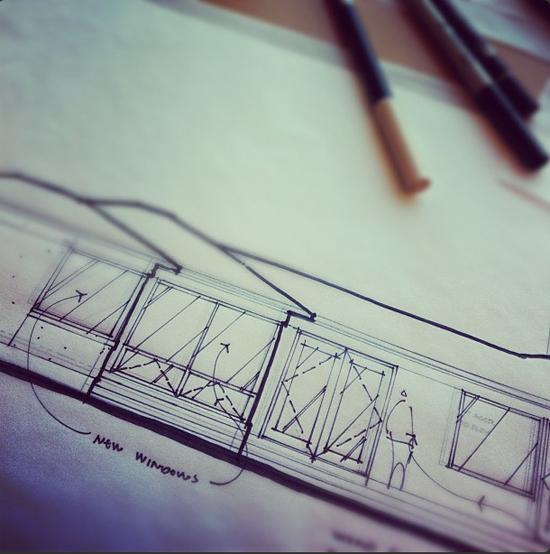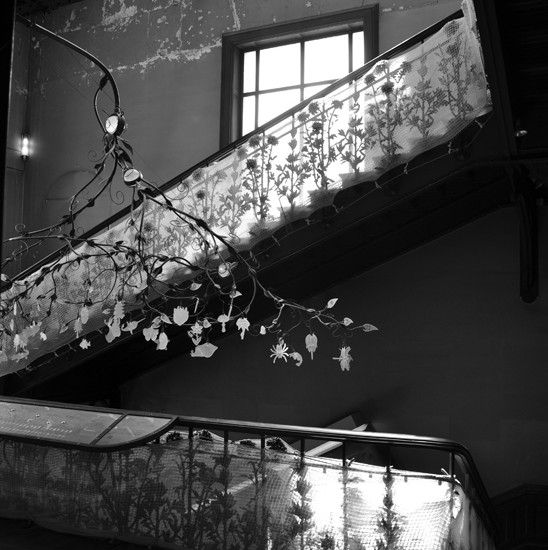I am finally getting around to making this Frequently Asked Questions page (in my case, it should really stand for “Finally Answered Questions”). I have been thinking about assembling a page like this for the last 2 years hoping that it would reduce the amount of email I receive since people tend to ask the same sorts of questions. I will periodically add more questions and answers to this list because I don’t think it will ever be completed.
.

There are loads of typical questions I get asked but I still haven’t had time to post them here (and my TV ain’t gonna watch itself). Because I am a mean person, if you write me an email asking me one of the questions I’ve already answered below, I might respond and refer you here but probably I’ll just shake my head, sigh, and delete your email. Sorry.
Now let’s get this party started!
Can I put an ad on your site or embed a link into an article you have written? Do you accept guest posts? What about Infographics?
I unfortunately have to start with this question first. As far as ads go, I don’t do very many and I turn down 99% of the people who ask. If I think it’s something that the people who visit my site might be interested in than maybe – email me the particulars and we’ll see what happens. As far as embedding a link within a post … it will never happen. I don’t sell content within the body of anything I write. There is a clear delineation between side bar ads (that help cover server costs and what not) and the posts I write. I want people to know that if I talk about something, it’s because I believe in it and I am speaking the truth as I see it.
If there is a guest post on my site, it’s because I know that person and I have asked them to write an article for me. I do not need any “high quality articles that you think my readers will enjoy in exchange for a link embedded in the post.” My readers are clearly not interested in “high quality posts” or they wouldn’t be on this site in the first place.
Also … Infographic posts. I don’t want them regardless how amazing you think they are. We all know that they contain links to other paid sites wrapped up in pretty pictures. If you send an email asking if I would like to post your inforgraphic on my site, I will simply delete your email and move on.
I am in school and despite being really smart, I look around see how much better everyone else is than me. What am I doing wrong?
Just because you are smart does not mean that you are cut out to be creative. My identity crisis had more to do with how easy everything had been previously – that I did pretty well without trying – and when I got to architecture school, I was mediocre. Once I dedicated myself to the work required, I did not struggle. Once I stopped goofing around and removed all the distractions I had surrounded myself with, I think I was one of the better designers in school. If you are doing the work but it’s still not coming together for you, I don’t know what to tell you. I don’t know you and you can’t tell me enough information in an email for me to tell you what is broken and how to fix it. Going to college is a life expanding process – mostly because this is a time when you discover a lot of things about yourself. You are in one of these moments and only you can work yourself through this moment.
I know you would have liked for me to tell you the secret that would make everything better, I wish I could have done that as well. Just think of it this way, if it’s easy, it probably isn’t worth doing.
I am about to turn [any age] … am I too old to go to architecture school?
No – you are never too old to go to architecture school and pursue something worthwhile.
I have a question regarding [fill in the blank] …
Feel free to send my your questions and I promise I will do my best to answer them. Due to the volume I receive, I might not get around to your email for a while so be patient. If it’s been more than a month, email me again. If it’s been more than 2 months I probably won’t respond. Sometimes the que of emails to answer gets longer and longer and even though I should start at the bottom, I don’t. If your question is easy, I’ll probably respond anywhere between a few hours and a day or two. If you are asking something that requires a fairly involved and lengthy response, I mark the email as unread with the idea I’ll get to it later when I have more time (right? … it almost never happens). After a while, I just delete any emails I haven’t answered yet because I get tired of looking at them, sitting there all unanswered making me feel like crap.
I’m thinking about starting my own blog and I like the way Life of an Architect looks – how do I make that happen?
I am on a WordPress.org site (which means I host Lifeofanarchitect.com myself – which I highly recommend) and my template is “Eleven40 Pro” by StudioPress and I find it to be “meh”.
When I first started and my traffic was lighter (less than 100,000 per month) I hosted my site on Bluehost, which I highly recommend, and it only cost about $6/month. They had unbelievable customer service – which came in handy because I had no idea what I was doing when I started. I called them a lot in the beginning (including one time when I accidentally deleted my entire site which they restored for me). If you are trying to determine where to host your site, I loved my Bluehost experience and I recommend them based on my own experience.
Once my traffic got into the 150,000/month+ range, I ended up moving over to a dedicated virtual server over at MediaTemple. I am on a dedicated virtual server that has 2GB of ram, 50GB of storage, and 3TB of bandwidth. Technically you are supposed to be able to manage this server yourself but even with my lack of knowledge, customer service has always stayed on the phone with me and walked me through what I needed to do. This service is a bit more expense and runs approximately $120/month
Can I just ask a question in the comment section below?
I would rather you didn’t unless it’s specific to the content covered in that post – i.e. – If the post is on radiant barrier flooring and you ask a question regarding your school portfolio I am going to delete it. Time and place folks-
I have questions about what school I should attend, or anything related to college, can you help me with that sort of thing?
No. I haven’t been to college in a long time and I don’t keep up with requirements, what school is better than that school, what sort of classes you should take in high school, etc, etc. Sorry but there are other websites out there – or better yet – contact the school you are interested in attending and ask them what sort of thing they like to see in their incoming freshman. You be about to pay them ten’s of thousands of dollars so I don’t think it’s unreasonable that you should expect them to answer your questions.
I have a student project where I need to interview an architect. Can I email you some questions?
I hate answering this question because I look like a total jerk. No, I won’t answer school project interview questions anymore. I receive about 10 requests a week and there just isn’t time to respond to them all – so I don’t respond to any. The questions are generally really complicated and require several sentences to answer. Next thing you know, after 10 questions, I’ve basically written a 1,500 word article. Now multiply that times 10 … and it’s not so hard to realize why I spend so much time on the computer these days. Because I don’t want to sit on the couch 3 hours a day after I get home from work, I am going to have to take a flyer on the school project questions project.
Sorry.
Is your work copyrighted? Can I repost it?
Yes, my stories and graphics are copyrighted, but as long as you attribute (give me credit) and provide a link back to the source material, I won’t get up in your face about it. I would ask that you don’t repost entire posts because it just sort of sucks. Why? Well, frequently it comes across as someone else taking credit for what I’ve written and prepared and since I’ve given up any sort of personal time I have to create these posts, I take it personally when someone else just takes them to create content on their own site. All you have to do is ask – I’ll probably say yes but there are a few posts on here that I don’t want in other places.
I am thinking about becoming an architect. Is there something special I should know?
Probably. Here is something to get you started – Top 10 Reasons to be an Architect
Feeling a little jaded? – Top 10 Reasons NOT to be an Architect
How about – Top 10 Reasons to be a Residential Architect

Whew! Okay, I am Top 10’d out for now. Maybe eventually some of the other Top 10 lists I’ve prepared will show up here.
What sort of computer should I get?
I don’t know … a powerful one with lots of RAM and memory if you plan on doing any 3D visualizations – probably with a really powerful graphics card as well. I work on a PC at the office and a Macbook Pro at home.
Why did you choose this job?
I think it chose me. I knew I wanted to be an architect before I knew that architects existed.
For more: “What did you want to be when you grew up?“
I’m in 8th grade and in class we are choosing our electives for high school. I always wanted to be an architect but I’m afraid architecture is hard and that I won’t make a lot of money. Is it true?
Just as with all professions, some people financially do better than others. To make the sort of decision you are talking about at your age wouldn’t be very prudent. The architectural profession is undergoing some fairly radical changes and by the time you graduated with a professional degree (9 or 10 years from now) things will be different.
I don’t recommend that your base your decision based on how much money you might make, at least not when your in 8th grade. Give it some time and revisit this question in a few years.
How much traffic does your site get?
According to my server provider, as of April 2015, I am currently averaging between 250,000+/- unique visitors a month and approximately 650,000 page views a month. Don’t ask me how, I can’t explain it either.
I have a cool blog, want to trade links?
No. Sorry, not trying to be a jerk (again) but it is too much work to keep up with everyone else’s links and rather than hurt someone’s feelings by not including them, I just don’t include anyone. I will try to find another way to be supportive though – just ask.
What is your favorite part of your job?
I’m not sure I have a favorite part, I like it all (although there are some days when I hate it all but that’s not intrinsic to being an architect). I probably enjoy construction administration more than construction documentation although if I didn’t pay attention to the documentation, I probably wouldn’t like the administration part. I generally get along really well with contractors and sub-contractors because I respect what they do and the challenges they have to deal with … but I also have been fortunate to have worked with good contractors so I don’t have to mess about with guys who shouldn’t be contractors.
You seem to be killing it, how much money do you get paid? Are all architects rich?
Thanks, I do all right but I’m not going to tell you how much I get paid. I have to tell you, I hate the whole “architects are underpaid” conversations. For me, the more appropriate way to answer this question is am I happy with how I am compensated? I like my job, my clients are interesting and I can pay my bills … that all sounds pretty good to me. If you want to know what architects make, you can read Architect’s Salary – Wanna Know? and How much money does an architect make? Of course there are still plenty of variables that will affect what level of compensation you receive – skill and ability level, size of firm, where you work, etc.
I really like your sketches. What sort of pens do you use?
I use Sharpie brand pens – Ultra Fine Point for thin lines and the Fine Point for fat lines (I know, why is the “Fine Point” called that, it isn’t fine at all!). I am hardly an artist but I do think I can communicate well enough when drawing. I love my Sharpies and I am quite sure that between my office, my house, and my car, there are several hundred laying out.
I always wanted to be able to use a fountain pen but since I am left handed, I would inevitably draw my hand through wet ink and smear whatever I just drew. These Sharpie pens lay down a nice dark line with little effort and the nib has enough give that I can get a little pen weight when I draw.
What are some skills you need in this job and why?
I think you would need to be good at visualization, 3 dimensional problem solving, creative, and a good communicator. I’d even put a little extra emphasis on the “good communicator” part. For a little more elaboration, read this article I wrote on communication skills needed by architects – “Square, Crescent or Nugget – How do you like your ice?” (just so you know, it isn’t really about ice cubes)
Do you think it would be possible for me to become a successful architect as a woman starting late in the game, or am I kidding myself? Would it be too much to try to balance family life and a challenging graduate program Most importantly, do you think anyone would hire a 45-50 year old woman just starting out?
What school did you go to become an architect (what courses did you take)?
I went to the University of Texas at Austin (graduated in 1992) and with the exception of band (marching and Jazz) and the occasional pottery or other fine arts class, I pretty much stuck to the syllabus. Design studios, Construction Materials & Methods, a few years of Structures, etc.
In 1990, I participated in the London Lugano Travel Abroad program – a joint program associated with Virginia Polytechnic Institute where I spent a portion of the summer and Fall semester traveling throughout Western Europe. I studied Architecture in Europe – but so what? (nobody really cares when it was 20+ years ago. I just wanted a way to include a picture when my hair was still brown)
I am thinking about attending [fill in the blank] University. Is it a good school to go to and if not, what are some other colleges I should consider?
I don’t have any idea. I went to the University of Texas and I know it is a bad ass program (ranked #2 in the country in 2012). Since I didn’t go to the school you are considering and I graduated from college 20 years ago, I haven’t keep up with the curriculum at [fill in the blank] University. Do some homework, visit the campus, and look for people who recently graduated from that program.
How long will it take to complete a project?
Depends on what sort of project, how large or small it is, are the clients available to meet regularly and will they make timely decisions? There are too many moving parts to this generic question to provide an answer of any value. Of the projects we tend to work on, new homes over 4,000 square feet generally take 3 months to design, another 2 to prepare the construction documents that are suitable for bidding and permitting the project, 1 month to either get a hard bid or a negotiated project estimate.
What is your project management style?
My project management style is awesome. Honestly, I’m not sure what this question really means. If you work with me at my office you might need to know but if you are a client, all you would care about is that we are full service, I always answer my phone, and if you say you need something, you tend to get it immediately. There is a lot of personality that goes into creating residential architecture and I generally start with an attitude of “how can we get to yes?”.
I sent you an email/ friend-request on Facebook / left a comment and you didn’t respond. Are you a jerk or do you hate me?
I might be a jerk but that’s not why I didn’t respond to you. Some emails are easier to answer than others and I can respond to 20 or so of the easy ones over my lunch break or in the evening when I have some time. Others require far lengthier responses if they are to have any value and so I put them off until I have that sort of time. Eventually, I have this huge cue of hour-long emails responses still to write, I get depressed and decide to purge them all so I don’t have to look at them. If you get caught up in a purge – sorry, it’s nothing personal, chances are pretty good that I skimmed it only enough to know that it didn’t fall into the “easy” list. I also don’t accept friend requests on Facebook from people I don’t know really well. While my blog can be personal in nature, it isn’t the same as my personal Facebook page and I don’t really want to see pictures of your dog if I don’t know you.
How do architects evaluate or design a site?
If I understand this question properly, the way we go about evaluating a site start with zoning, setbacks, deed restrictions, etc. All the things that tell us where we can – and where we can’t, build a house. From there we look at any natural features the site might contain – trees, topography, possible water areas, in order to see what items can be used to benefit the design and which items will provide hindrances to the design. From there, it’s a balancing act between what the land offers and what the client’s program dictates.
What software do architects use and need?
If you were to ask 10 architects this question, you would get 11 answers. In our office, we use Revit. Other software that is routinely used is SketchUp and Photoshop. There are all sorts of other platforms out there that allow some really amazing 3D work but our clients generally don’t request that level of visualization and probably appreciate that we don’t “just do it” and end up building that type of effort into our fee structure.
Do you have a particular design style?
Me personally? Sure – I like modern because it’s clean and simple and promotes a certain lifestyle that aligns pretty closely to my personal lifestyle beliefs. That having been said, I believe that I am educated, trained and experienced in a way that allows me to solve spatial and aesthetic problems systematically so that the value of the end product exceeds the sum of its parts. All these things collectively allow me to make informed and qualified design decisions in areas that don’t follow my personal tastes and predilections.
What is your favorite building
Ugh – I generally hate these sorts of questions the most – I don’t really have a favorite of anything – things sort of ebb and flow in and out of the top slot.

My favorite local building – and that’s an easy one for most architects in the Dallas/ Ft. Worth area – is the Kimbell Art Museum in Fort Worth (completed in 1972). It redefined how museums and art galleries used natural daylighting and is truly a modernist masterpiece. I am also lucky that it’s in my backyard and can go and visit several times a year.
The Galeries de Paléontologie et d’Anatomie Comparée (Gallery of Paleontology and Comparative Anatomy) is a jewel. Part of the French Muséum national d’histoire naturelle (Natural Museum of Natural History), it is located within the Jardin des Plantes in Paris near the metro stop for Gare d’Austerlitz.
The gallery, designed by French architect Frederic Dutert, was inaugurated in 1898 as part of the l’Expositions universelles de Paris of 1900 and was the creation of Professor of Paleontology Albert Guadry and Professor of Comparative Anatomy Georges Pouchet who wished to preserve and present to the public collections from the great expeditions of traveller-naturalists of the 18th and 19th centuries.
The building is done in an architectural style called ‘Naturalism’, a sort of generic term for Art Nouveau, Organic Architecture, and Expressionism. Art Nouveau was an anti-historical movement that was predominantly in Europe between 1890 and 1914, and as a style was developed by a generation, most likely as a response to the Industrial Revolution, who sought to create an art form appropriate to the new modern age.
For more information/ pictures (including the most popular photo on this site), read the entire post – My Newest Favorite Old Building
Is it difficult to become an architect?
Yes. I wrote a post about the process: Do you want to become an Architect?
Is it easy to find work?
No
If I wanted to become an architect, which I’m highly considering, what would be the best college to go to?
Depends on what type of architecture you are interested in – at least what sort of slant the schools take towards teaching. It also depends on where you live, the cost and ultimately the value you place on the name associated with where you get your degree. I don’t keep up with any of these sorts of things since I graduated 20 years ago but there are lists available for free (and some for purchase) online.
America’s Top-Ranked Architecture and Design Schools
I’m currently making a portfolio so I may be accepted to the [generic] College of Architecture. Is there any advice you could tell me?
First, you should read this: Architectural Portfolios.
I have been removed from college for 20 years now so I am probably the worst person to give advice on this subject. I would say that whatever you submit, allow it to show some diversity and personality – whatever subject material you choose to submit. You could also contact the university to see if there are any previous examples you could look at or if there are certain types of things they look for in a portfolio.
What classes would you recommend for architecture besides the basic ones?
If I was going back and doing it all over again, I would have added some rudimentary business classes and possibly some real estate classes. Nothing too heavy, just enough so that you can get a grip on some basic business concepts and when needed, you can talk the language of your clients.
I’m in my first year and am really struggling with my architectural lettering. Do you think this needs to be of great concern to me?
Nobody writes that way anymore so I wouldn’t worry about it. I had to go through that process practicing my handwriting and I can do it but since everything is on the computer these days, who would know if you can or can’t letter?
I am about to start looking for a job, do you have any advice on how to keep my design mind alive and what jobs to avoid?
As you make the shift from school to the working world, I generally tell people to go for any sort of job that excites you. The practice of architecture varies so widely between the sizes of firm and the market sectors they practice so you should expect to find a job just to discover what mixture is right for you. Smaller firms tend to give responsibility more quickly but advancement is limited. Their projects are also typically smaller and don’t last as long (which can make things stay interesting for longer). Larger firms have more room for advancement but you will be exposed to more specific tasks and opportunities. When you are young, it’s about discovering what you like and what you want to do – most young architects tend to change jobs pretty frequently in the beginning for just this purpose.
I generally try to recommend to people that they contact the people they would like to possibly work for and ask them what sort of skills and software platforms they typically use. For the most part, AutoCAD is the industry leader and you won’t go wrong by learning that software package. There might be some value to learning Revit (also by AutoCAD) but it is BIM – Building Integrated Modeling. Many of the larger firms are making the transition to this type of software so you might be better served spending your time learning it rather than AutoCAD.
RESOURCES
If you are interested in learning more about architectural fees, I have written a few posts on the subject:
Finding a Contractor:
30 Interview Questions: Selecting a Contractor
Selecting a Contractor – Checking References
.

Where am I?
Best Architecture Blogs – Man of Many
Best Blogs for Architecture Students
25 Blogs for Design Inspiration
World’s Best 100 Blogs on Architecture
8 Independent Architects Taking the Lead
Architecture Firm Blogs to Watch in 2013 – Architectural Record
Architizer Interview – Graphite Poetry and All That Conveys
New York Times – Interior Fort structures
Best Practices: Time Management – Architect Magazine March 2015
Building App-titude: Apps for Architects – Architect Magazine August 2014
Word Wars – Architect Magazine January 2014
Balancing Architecture and Family Life – Freshome.com
Designer Interview on Achica Living
Creative Type Interview on Here in this House
Lecturing Mentors – from Build llc
Insightful and clever articles I’ve written elsewhere
ArchDaily – handpicked favorites that the folks at ArchDaily wanted to rerun for their audience
Brand Elements | Architect Magazine (clever article about naming your architectural firm)
My Three favorite wood species (wow, what a title!) on Gold Notes
“Remnant” for the ISSUE: Collective – The University of Texas School of Architecture
Elsewhere
I have been interviewed for radio and video a few times …
Entrepreneur Architect – Secrets to Blogging Success
Business of Architecture – Social Media and Marketing (this one has video)
How to Succeed in Architecture: Social Media to Get What You Want – Novedge
Builders Link – the dulcet tones of Bob Borson
Heritage Radio – Burning Down the House
.
.



